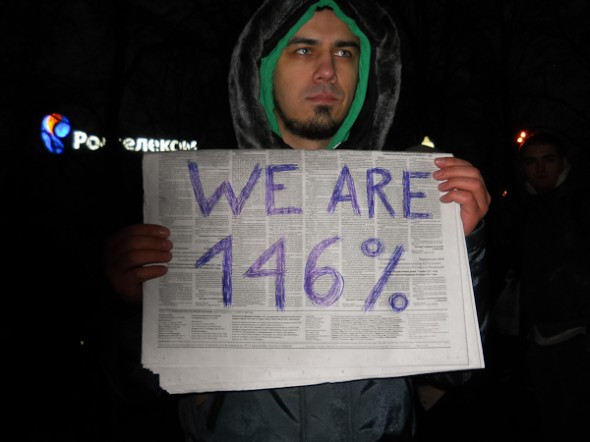
Alex and Evgeny on Wednesday led an enlightening discussion about the influence of social media in the world’s two giants: China and Russia. China is the largest country in terms of population, and Russia is the largest in terms of size, so the widespread use of social media has a large impact both within the countries and from a global perspective.
In Russia, Twitter reigns supreme. Spin-offs of Facebook (such as VK) are more common than Facebook itself, but Twitter is used by many. (One interesting fact we learned from Evgeny is that the most popular person on Twitter in Russia is Dmitry Medvedev, the president.)
In China, the situation is much different. After rioters used social media to collaborate, the Chinese government blocked many social-media sites, including Twitter, Facebook and YouTube. While there are ways around the ban (such as a VPN, or virtual private network), people in China most often use the microblogging site Weibo as a way to communicate and collaborate. Weibo is the most popular microblogging website in China, with 250 million users.
Alex mentioned that Weibo gives the Chinese people a way to speak freely, despite the constraints their government has placed on their Internet usage. They use Weibo to criticize the government — which, in some cases, has prompted the government to act change. In the bullet-train accident last summer, for example, the Chinese government promised to investigate after an outcry erupted on Weibo.
In Russia, social media serves a similar purpose. The hot-button issue in Russia at the moment is governmental corruption, and Prime Minister Vladimir Putin (who is seeking the presidency) is at the heart of the controversy. Russians have been using Twitter to organize peaceful protests that have drawn thousands of people to Moscow and elsewhere in protest of Putin’s policies.
The use of social media to criticize government and even react to perceived injustice draws direct parallels, for me, to the Occupy movement that sprang up last year around the United States. The movement was (and still is) without a central leader, yet it drew huge numbers of people to cities all over the country, including Phoenix. They rallied in response to what they saw as an unjust economic system, and they used social media to hold the movement together. Twitter became a platform for spontaneous organization and constant updates from the protesters, and Facebook groups played a huge role in amassing crowds for the protests.
Having seen firsthand the exponential impact social media can have on empowering a group of like-minded people to come together with one voice, it was enlightening to hear that social media in Russia and China are being used in a very similar way. Both Evgeny and Alex talked about a “new generation” in their respective countries — a generation of citizens who use the power of the Internet to mobilize and to express their opinions to or about their government. I think the same thing is happening here in the U.S., and it’s exciting to see how social media is continuously evolving and being used to further causes all over the globe.

I agree that it is fascinating to see the influence of social media in various countries. It really has changed the way people communicate.
It is interesting to see the different brands of social media being used. Although people may use different platforms, the platforms have all been used to connect people to promote a cause.